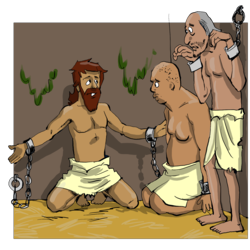 Many books have been about postmodernity and the generational differences between Builders and Boomers and Busters (Gen Xers) and Gen Y. I have purchased and read a lot of them. The problem with such books is that they try to treat large numbers of quite disparate people as if they were a homogeneous group. Looking at a person as the average of a set of statistical values does not really help you connect with that person.
Many books have been about postmodernity and the generational differences between Builders and Boomers and Busters (Gen Xers) and Gen Y. I have purchased and read a lot of them. The problem with such books is that they try to treat large numbers of quite disparate people as if they were a homogeneous group. Looking at a person as the average of a set of statistical values does not really help you connect with that person.
The Holy Spirit works to create changes in people in the strangest of situations, sometimes even in uninspiring declining churches. However, the Holy Spirit is far more likely to bring about changes within a person’s life within the context of a dynamic community of passionately devoted followers of Jesus. The good news will only appear real to listeners if the environment in which the good news is communicated is consistent with the message.
It isn’t difficult for an outsider to be inspired by the radical teachings of Jesus about caring for the poor, hungering and thirsting for righteousness, being peacemakers, turning the other cheek when someone hurts you, loving your enemies, giving generously to the needy, and being non-judgmental, but if the outsider perceives a credibility gap between the message and the actions of the community which preaches the message, the outsider is not likely to want to join.








